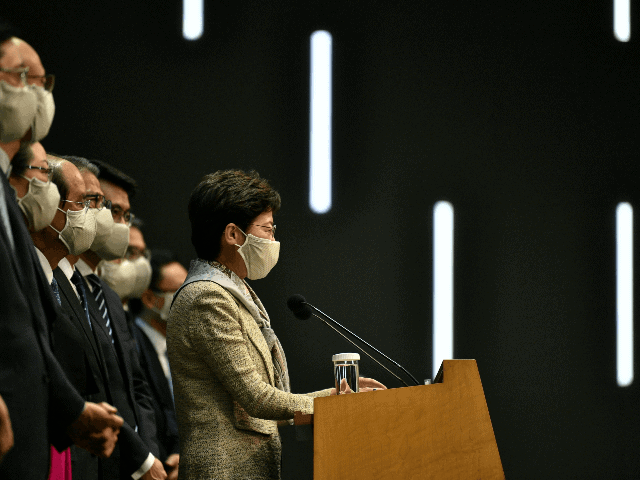U.S. Halts Extradition Treaty with Hong Kong over National Security Law

The U.S. suspended its extradition treaty with Hong Kong on Wednesday, as the Trump administration continues to rescind Hong Kong’s special privileges in response to China’s imposition of a controversial national security law on the traditionally semi-autonomous city.
The extradition treaty was one of three bilateral agreements with Hong Kong that the U.S. State Department said it had suspended.
“These agreements covered the surrender of fugitive offenders, the transfer of sentenced persons, and reciprocal tax exemptions on income derived from the international operation of ships,” U.S. State Department spokeswoman Morgan Ortagus said on Wednesday.
“These steps underscore our deep concern regarding Beijing’s decision to impose the national security law, which has crushed the freedoms of the people of Hong Kong,” Ortagus added.
The U.S. State Department said the suspension of bilateral agreements served as part of the United States’ “ongoing” response to Hong Kong’s new national security law, imposed on the city by the Chinese Communist Party in late May. On July 14, U.S. President Donald Trump signed an executive order declaring that Hong Kong was “no longer sufficiently autonomous to justify differential treatment in relation to the People’s Republic of China” because of the national security law.
The new law undermines Hong Kong’s limited autonomy, which is allowed under a “One Country, Two Systems” policy agreed to by Beijing after Britain handed the city back to China from colonial rule in 1997. Under the 1997 policy, laws passed in Beijing do not legally apply in Hong Kong. Despite this, Hong Kong police have already arrested citizens for violating the new crimes listed under the national security law, which include collusion with a foreign government, secession, terrorism, and “subversion of state power,” a vague term designed as a catchall. Under the new law, anyone in Hong Kong found guilty of the national security crimes faces a minimum of ten years in prison.
The U.S. State Department announced its suspension of bilateral agreements with Hong Kong less than two weeks after the Trump administration issued economic sanctions on Hong Kong’s pro-China chief executive, Carrie Lam, on August 7 for “implementing Beijing’s policies of suppression of freedom and democratic processes” in Hong Kong.
Photo: ANTHONY WALLACE/AFP via Getty Images











